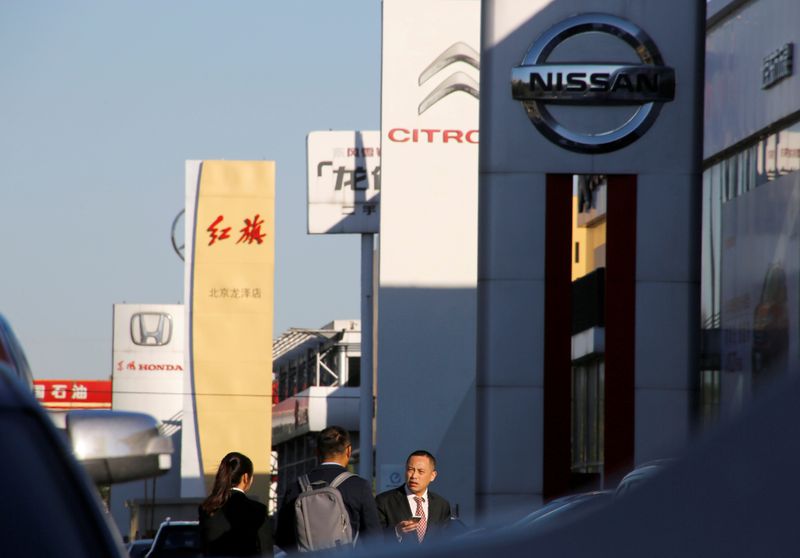This post was originally published on this site
https://i-invdn-com.akamaized.net/trkd-images/LYNXMPEG9C0FD_L.jpg
BEIJING (Reuters) – Automobile sales in China rose 12.8% in September from the same month a year earlier, marking the sixth consecutive month of gain, as the world’s biggest vehicle market comes off lows hit during the coronavirus lockdown.
Sales reached 2.57 million vehicles last month, showed data from the China Association of Automobile Manufacturers (CAAM).
Sales are still down 6.9% for the first nine months of the year at 17.12 million vehicles, CAAM said.
Auto insiders refer to “Golden September, Silver October” as they regard the months as the high season for China sales, with drivers venturing out to make purchases having stayed away during the stifling summer months.
Reflecting that trend, sales of passenger vehicles rose 8% in September. Geely Automobile Holdings Ltd (HK:0175), Great Wall Motor Co Ltd (SS:601633) and Toyota Motor Corp (T:7203) booked double-digit growth.
The Beijing auto show, promotional events and local policies supporting consumption in the auto sector helped sales growth in September, said senior CAAM official Chen Shihua.
However, as broader economic activity is still slow, consumer confidence is yet to recover so it will take time to fully release demand for more affordable products, Chen said.
New energy vehicle (NEV) sales surged 67.7% to 138,000 units for their third consecutive month of gain. NEVs include battery-powered electric, plug-in petrol-electric hybrid and hydrogen fuel-cell vehicles.
NEV makers such as home-grown Nio Inc (N:NIO) and Xpeng Inc (N:XPEV) as well as foreign firms like U.S. leader Tesla Inc (O:TSLA) are expanding manufacturing capacity in China where the government promotes greener vehicles to reduce air pollution.
On Oct. 1, Tesla cut the starting price of its Chinese-made Model 3 sedan by about 8% to 249,900 yuan ($36,805).
For trucks and other commercial vehicles, which constitute around a quarter of the overall market, sales surged 40% in September, driven by government investment in infrastructure and as buyers upgraded to comply with tougher emissions rules.


